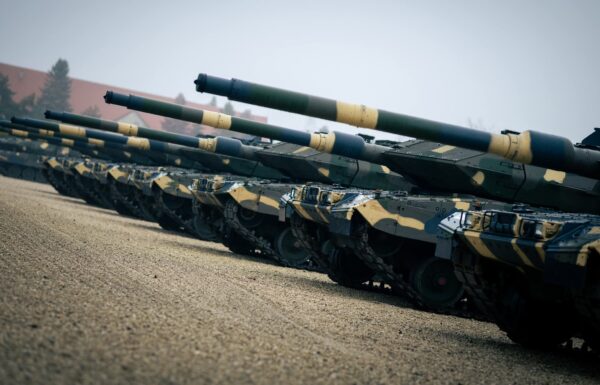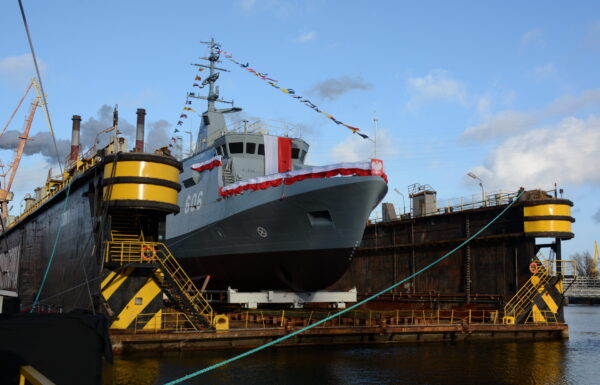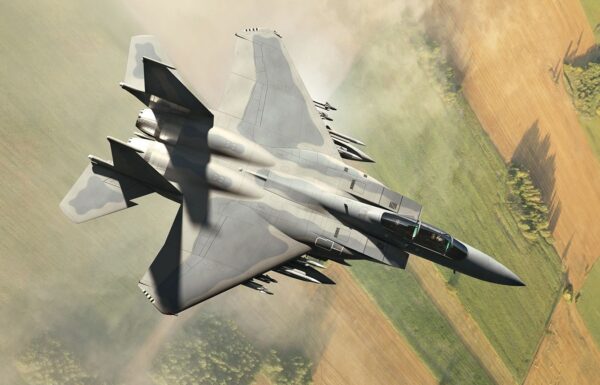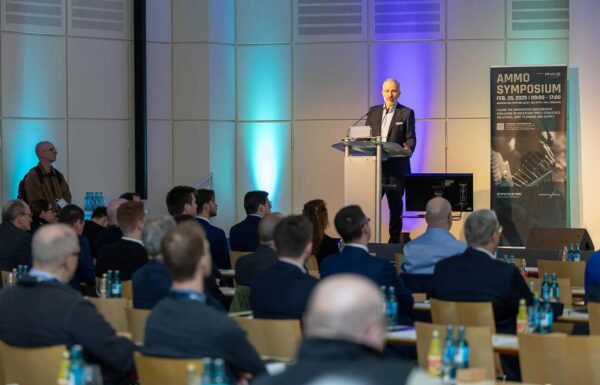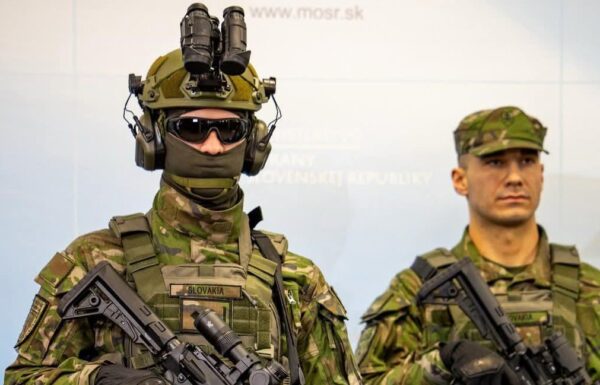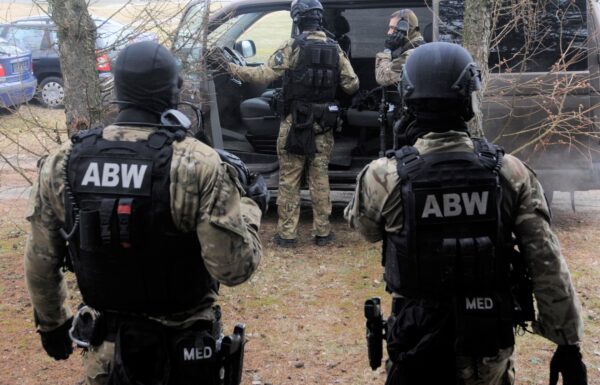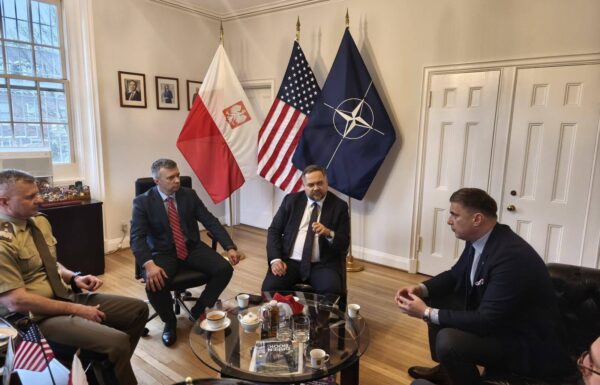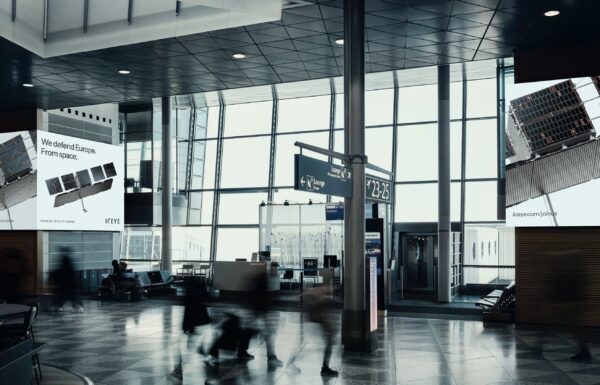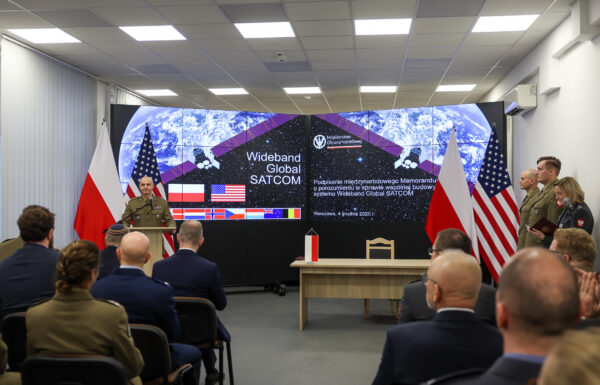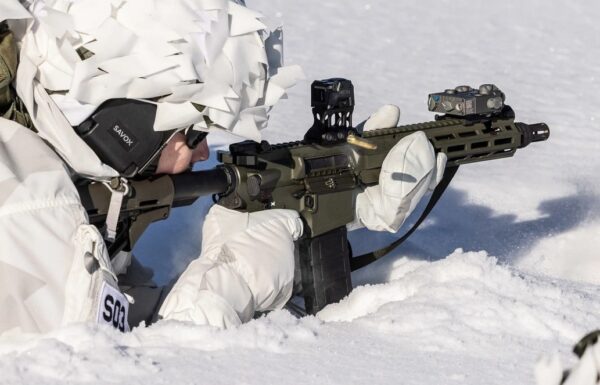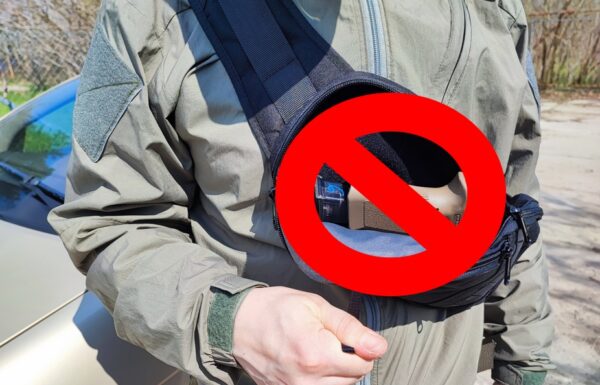The current events are not the first case since the mentioned 2015. Peoples reaching the Greek and Italian territories from North Africa are basically an everyday occurrence. What makes the current migration crisis attract so much attention, despite not reaching the magnitude it had six years ago? Multiple reasons can be mentioned.
The first reason, the most important from the Polish point of view, is that the current event happens at our border, with Poland and Lithuania becoming the transit points along the migration route. According to official information from November 2021, Poland noted 24 500 attempts of crossing the border with Belarus. Over half the cases took place in October, compared to mere 120 attempts in the last year.
The second reason is the fact that the border pressure is directly controlled by the government of Belarus. Minsk wants to use migrants to destabilize the European Union, and pressure European governments and institutions to accomplish its own goals of lifting sanctions and recognition of validity of Alexander Lukashenko’s presidency.
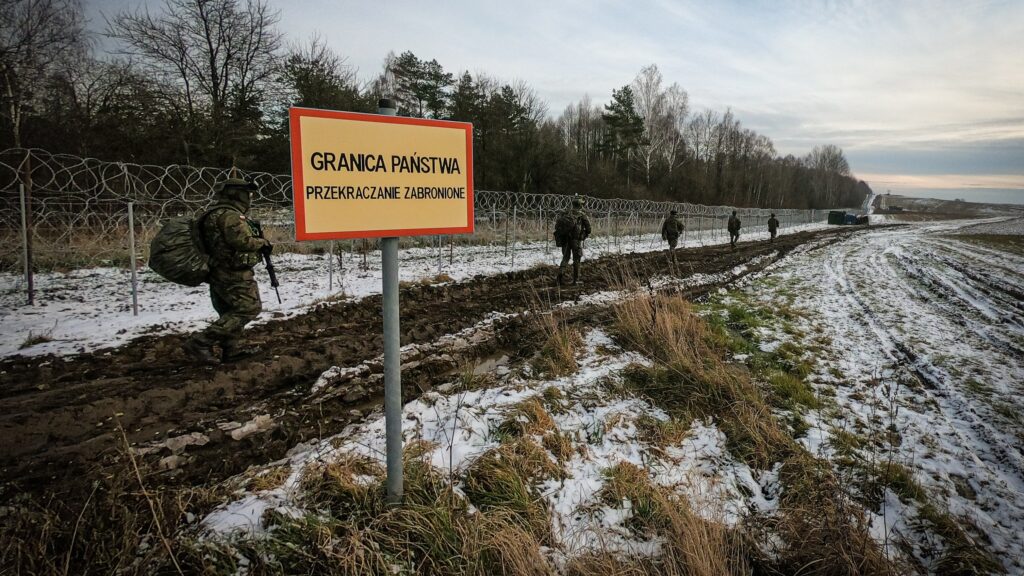
Polish soldiers aiding Border Guards on border with Belarus / Photo: the Ministry of National Defense
Genesis
Lukashenko, who retains his position continuously since 1994, bases his government policy on maneuvering between the West—represented by the European Union, and Russia. Shifting the balance between the sides secured his position, despite being called the last dictator of Europe, and accusations of election fraud.
Europe saw Lukashenko as a chance of pulling Belarus into their sphere of influence. For Vladimir Putin, all other candidates participating in Belarusian elections represented too pro-Western direction, which, in case of their victory, would make that country leave Moscow’s control. Lukashenko was viewed in Russia as a guarantor of status quo. The situation has changed since then, with two events leading to political isolation of Belarus.
The first was blatantly rigged presidential elections, in which the incumbent leader received 80% of votes. They were preceded by public harassment of the opposition, including arrest of the counter-candidate Sergei Tikhanovsky. He was replaced as a presidential candidate by his wife, Svetlana Tikhanovskaya, as the opposition rallied around her. According to some sources, she might have received around 70% of votes. It did not stop Lukashenko from announcing himself the winner and the counter-candidate had to flee to Lithuania. This resulted in the European Union refusing to recognize Lukashenko’s claim and placing sanctions on Lukashenko, his son and state security advisor Victor, and 179 other people and entities tied to Belarusian government.
The second reason for political isolation of Belarus was the act of state terrorism, detention of opposition activist Roman Protasevich traveling from Greece to Lithuania. Belarusian military aircraft forced a Ryanair passenger plane to land on the territory of Belarus, where Protasevich was arrested. In response, the European Union has banned Belarusian airlines from using airports located in the union, forbidding them entry into Union airspace.
Migrants
The first information regarding the increased number of people coming from the Middle East trying to enter the European Union through Belarus appeared in June 2021. With each day, their numbers increased, forcing Lithuania, Latvia, and Poland to watch their borders while guarding the boundaries of the European Union.
Groups, referred to with a broad term of refuges, did not appear on Polish borders suddenly. Smaller or larger groups of people seeking better, safer, or more comfortable lives keep coming continuously since the great wave seen in 2015.
Smuggling migrants from Africa to Europe is well organized by international groups. Number of people that came to Europe in 2015, shook the denizens of the old continent. Their behavior, sense of entitlement, and lack of respect for the culture of the communities they found themselves in, quickly turned the citizens of the European Union unfriendly toward immigration. Additional stories about lawbreaking, attacks, and covering up their crimes further pushed the social attitudes from welcoming to xenophobic and nationalistic.
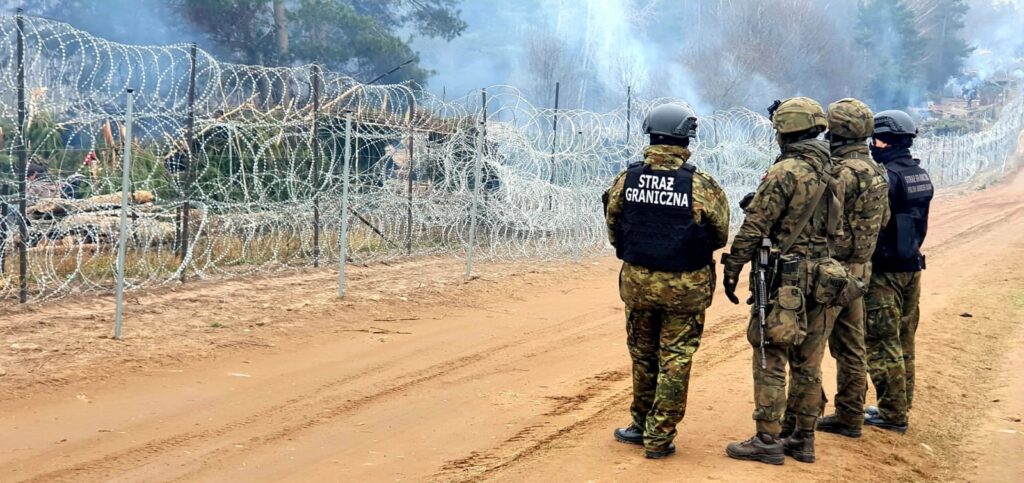
Camp of migrants on the Belarusian side observed by Polish Border Guards and soldiers / Photo: Border Guards
It’s worth noting that that backtracking happened mainly in the countries of the so-called Old Europe, burdened by legacy of postcolonialism, which have been accepting people coming from beyond Europe and providing them with citizenship. Countries of the “New Europe”, accepted into the European Union after 2000, have been skeptical and reluctant, or even averse to forced relocation of refugees. Countries such as Poland, Hungary, Lithuania, or Czech Republic, ethnically and culturally homogenous, not burdened with the historical debt to former colonies, which they did not have, refused to accept people coming from Africa or Asia.
Stopping the wave of refugees after 2015, did not cause the phenomenon to disappear. However, it did not reach such a size again. Belarusian case is basically the first one of such magnitude. While it could be called marginal and negligible compared to the events from six years ago, its form and experiences carried out of the past wave sparked a serious interest in the current situation at Polish-Belarusian border. The current situations is unique in that, the shady business that an illegal immigration always was, now receives helps of a government. The migrants received aid from Minsk, fulfilling threats from the past years. Lukashenko multiple times claimed that only he stands between Europe and a deluge of narcotics and migrants from Asia and Middle East. Now, unrecognized by European countries and subject to sanctions, the dictator decided to force the EU to accept the legitimacy of his presidenture and break out of political isolation that his own actions caused.
Already in August 2021, Belarus loosened the visa requirements attracting masses of people wanting to reach the European Union. At the same time travel agencies appeared with offers of flight and accommodation in governmental hotels in Belarus. It led to the appearance of people from Liban, Syria, Turkey, and Iraq. Later, those people will show passports stamped with Belarusian tourist visas.

Middle Eastern migrants on Belarusian side near the Polish border / Photo: the Ministry Of National Defense
The operation was well organized and met with great interest. Syrian territory, being in a state of civil war for a decade now in the aftermath of the Arab Spring, is dangerous enough that a lot of people want to flee to the EU. Migration from Turkey is mainly composed of people escaping refugee camps that are located on Turkish lands, with citizens of Turkey themselves being mostly uninterested in leaving for the EU. There are over a million refugees in Turkey, coming from neighboring countries entangled in wars. The conditions in camps are terrible. Overcrowding, thefts, murders, narcotics, and rape push a lot of people to leave. When the opportunity to reach the European Union via Belarus appeared, many saw it as their sole chance. Among the people on the Polish-Belarusian border are also Iraqi, particularly Kurds. While Iraq is not formally in a state of war, the NATO intervention under the American leadership that removed Saddam Hussein destabilized the situation in the country and the region. Kurds, who were persecuted during the dictatorship, felt little change to their situation. Shiite majority that was harassed, decided to get back at Sunni supporters of Hussein. Combined with multiple unfriendly neighbors, Turkish and Egyptian attempts to dominate Iraq, and activities of the so-called Islamic State, created a tapestry of conflicting interest groups fighting each other. Shaky political and social conditions and resulting lack of safety causes many Iraqi to emigrate. According to the spokesperson of the Kurdistan Regional Government, up to 8000 people from Kurdish region in northern Iraq might have accepted Belarusian offer.
Those events coincided in time with NATO withdrawal from Afghanistan and immediate occupation of the country by Taliban. Fall of the government prompted the president Ashraf Ghani to flee the country. Despite the Taliban assurances that there is no threat to civilians, they decided to leave the country. Situation was tellingly illustrated by recordings from Kabul airport, showing Afghan citizens gathering to flee the country. Social media shared videos of people trying to leave Kabul on wings of planes—from which they fell after the take off. According to the information revealed by Business Insider, quoting data from United Nations High Commissioner For Refugees, only in this year, Afghanistan had 400 thousands of internal refugees. Over the many years of conflicts, a total of 5 million Afghan citizens moved to other regions or abroad. The International Organization For Migration estimates that approximately 30 thousand citizens leave the country, mainly to nearby Pakistan, Tajikistan, and Iran, as well as Turkey. UN assessments predict that the worsening situation will force another half a million citizens out of the country. One of the directions of that migration is Europe.
Awareness of the threat became real for the European leaders. Greek Migration Minister, Notis Mitarachi said that the EU will not be able to handle the repetition of the migration crisis that happened in 2015, and needs to try to stop Afghans from leaving their country. Niels Annen, minister of state in the German Federal Foreign Office, noted it would be naive to believe that Taliban violence in Afghanistan won’t impact migration politics (1).
Lukashenko’s decision offered Afghans simpler access to the European Union through Belarus instead of the hitherto used Balkan route.
Effects were immediate. At the time of writing this text, since the beginning of the year, Lithuanian-Belarusian border has been crossed by 4 thousand immigrants. In comparison, over the whole 2020, a total of 81 people were stopped. The situation looks similar at the Polish border.
Both Lukashenko himself and Russian Foreign Minister Sergey Lavrov stated that the migration wave is the result of wars led by the USA in Iraq and Afghanistan, and Western support for the Arab Spring in Northern Africa and the Middle East. Additionally, Lavrov asked the EU to provide Belarus with financial aid to handle the migration. Similar fears were expressed by the Polish government. In November, Mateusz Morawiecki noted that there is a significant threat of using the Afghan crisis as a new stage in the migration crisis, harnessing Western guilt over chaotic withdrawal from Afghanistan (2).
Border tensions were escalated by active participation of Bealrusian governmental forces represented by OMON (3). The functionaries were tasked with supplying the people on the border with tools to pass the barbed wires and harassing the Polish soldiers and border guards. Recordings from the border show use of stereoscopic lamps and lasers to dazzle the guards, and utilize psychological warfare, such as playing recordings of crying children.
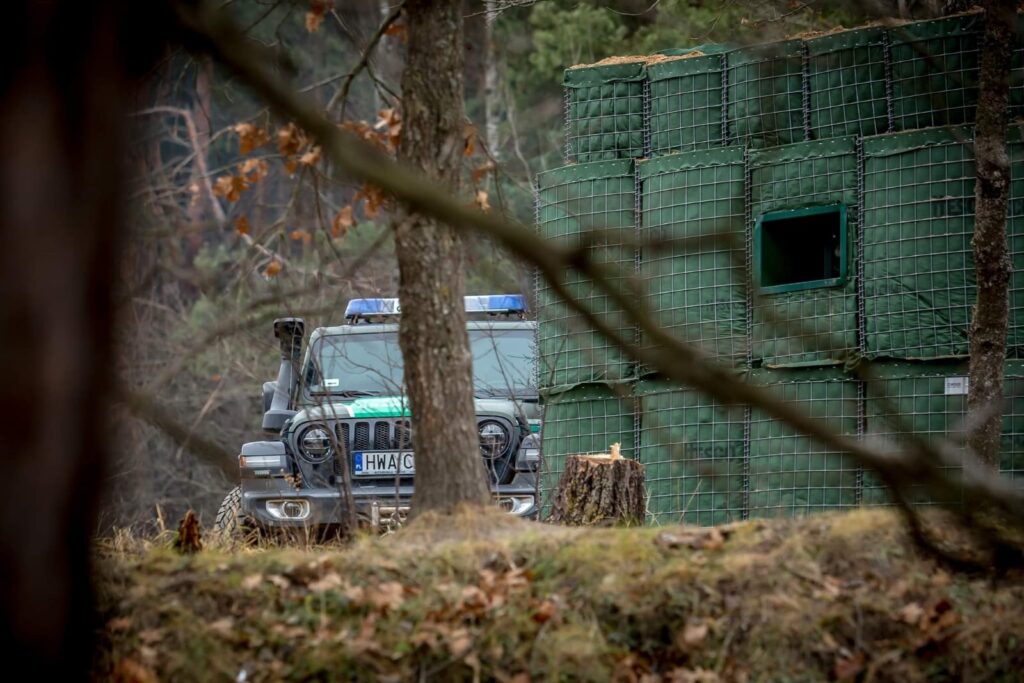
After incidents of pretended shoots at the Border Guards, special posts were placed on the Polish-Belarus border to ensure safety of the guards / Photo: Border Guard
The migrants themselves were used, often against their own will, as a tool of combat as well. Their transport was organized from Minsk and then forced to rush the wires. Belarusian forces used violence on those who resisted. Those who came with families, unable to reach EU territory and prevented from coming back were caught in a trap.
Multiple sources quote a case of a migrant who asked for asylum in Belarus as a country not in a state of war, which according to international law is a right of people whose life is endangered. Minsk not only rejected the request but also immediately deported the refugee back to home country, breaching international conventions (4).
Others, mainly adult men called by neoliberal left “engineers and doctors”, were trained by Belarusian forces in the use of knives to stab the exposed parts of the bodies of Polish soldiers and guards.
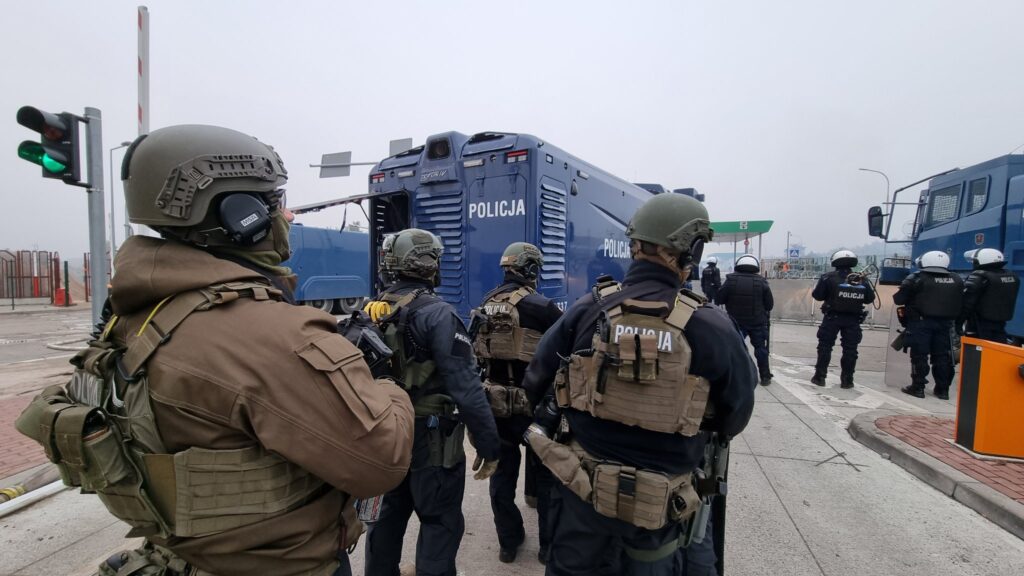
Polish soldiers patrolling border with Belarus / Photo: the Ministry Of National Defense
The growing tensions increased the risk of conflict escalation, be it accidentally, or, more likely due to provocation. The fact is that any tensions in Eastern Europe always leads to worsening of relations between Russia and the West, even when Moscow didn’t play a direct role.
In November, a two way diplomatic offensive took place. One one hand, with growing support from the EU, representatives of the Polish government spoke with their counterparts from Baltic countries. They agree to firm cooperation and lack of acceptance for Belarusian policies. On the other hand, German chancellor Angela Merkel spoke with Alexander Lukashenko. Both actions temporarily diminished border tensions.
Role of the Polish prime minister combined with actions taken by the president are known. It is worth reviewing the diplomatic actions taken by the European Union, however, that led to blocking flights to Belarus. Such a solution was proposed from the beginning by Lithuania, which together with the neighbors presented a proactive stance toward aggressive steps taken by Lukashenko. It resulted in suspension of flights to Minsk by Turkey, which announced no flights for citizens of Iraq. Similar steps were taken by the United Arab Emirates, which prevent citizens of Yemen, Syria, Afghanistan, and Iraq from traveling to Europe. So did the Syrian Cham Wings Airlines.
Actions taken by the German chancellor were met with less approval outside of Minsk. Angela Merkel coming into communication with the sanctioned Alexander Lukashenko, de facto admitted his leadership of Belarus, which was immediately publicized by Belarusian propaganda machine. Additionally, Merkel asked president of Russia, Vladimir Putin, for aid.
Another matter was an alleged promise to accept 2000 migrants by Germany if Belarus will send back another 5000 people. Such information caused a storm in Germany, and was quickly denied by German Federal Minister Of Interior Horst Seehofer. Pavel Usov, chief of Center For Political Analysis And Prognosis located in Poland stated that Lukashenko expects the European Union to submit to pressure and ask Poland to allow migrants to reach Germany. The EU knows however, that it would allow Lukashenko to present himself as a winner and would encourage him to further such actions, increasing the migrant numbers to tens of thousands.
Also, the European Union expressed objection to actions taken by the German chancellor, as she was not authorized to speak in the name of the European community. In face of criticism, Merkel stepped back from proposed solutions, though we can expect those arguments will be repeated by Belarusian regime. Another

Border Guard utilizes various additional measures to secure the Polish borders / Photo: Border Guard
What’s next? What is the role of Russia?
Appeal to the Russian president was an attempt to pass the problem from heads of Poland and even the whole European Union. Poland accused Vladimir Putin of supporting Lukashenko’s aggressive actions against our country, but obviously it was completely denied by Russia. The European Union is skeptical toward those accusations, because according to Western politicians, there is no unambiguous proof that Putin was engaged in the events at the border with Belarus. Economic interests tying Germany with Russia, mainly fuel deliveries by the latter to the former, make Germany reject, at least officially, the accusations against Russia. Baltic countries have different opinions, based on centuries of experience with the aggressive eastern neighbor.
It is worth considering the Russian role in the crisis. For Belarus, the Russian Federation is the closest partner and ally. At the same time, Alexander Lukashenko tries to keep Belarus from complete submission to Moscow, which the latter attempts to accomplish by purchasing majority interests in key Belarusian assets. Both countries are tied by military alliance and strong, anti-NATO rhetoric.
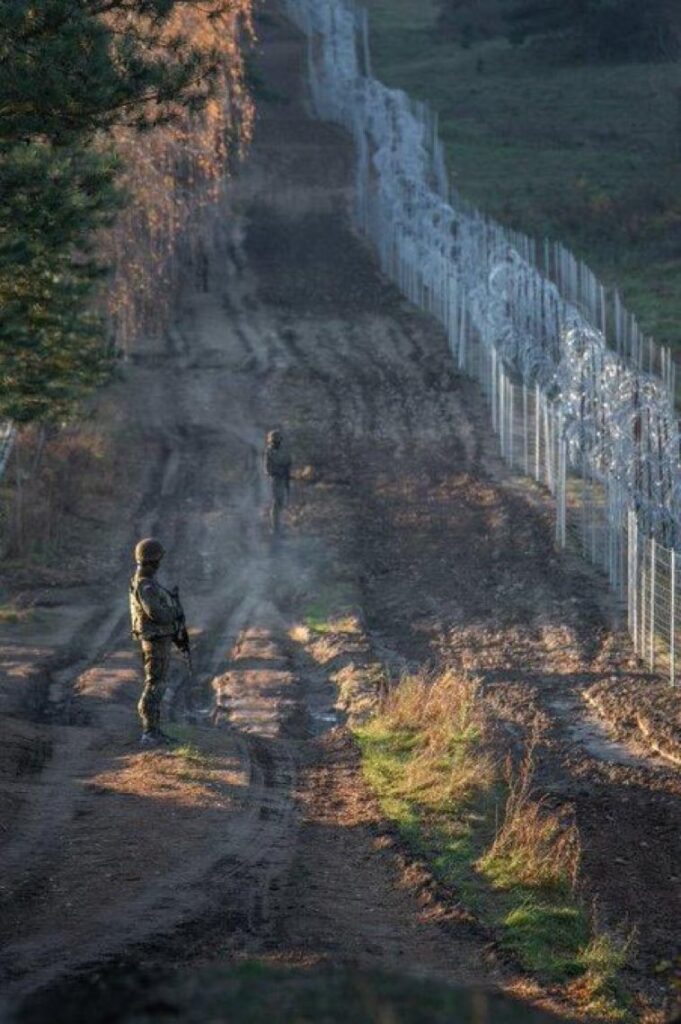
Polish soldiers patrolling border with Belarus / Photo: the Ministry Of National Defense
Being pulled into a crisis at the Polish-Belarusian border seems to be an inconvenience to Russia. Currently available information suggests that the Russian Federation focuses its attention on Ukraine, which, armed with Western equipment and Turkish drones, starts to respond to Russian aggression. Also, the behavior of Lukashenko himself, threatening the European Union with cutting off gas supply coming through the Yamal gas pipeline was contrary to Kremlin’s interests. Putting quickly and decisively curtailed aspirations of his neighbor, remind both him and EU, that the pipeline and the gas it transports belong to Russia, and Belarus is only their transit country.
Belarusian leader knew that between the isolation and sanctions, he had little to lose, and much to gain. Cutting the gas deliveries to the European Union would not impact Poland as seriously as other countries, such as France or Netherlands, which have much smaller reserves of gas than Poland.
That entangled Russia in the Belarusian politics, which is seen in Moscow as a sad necessity. Konstantin Zatulin, Russian lawyer connected to Putin, compared Lukashenko’s threat to a situation where the tail wags the dog, and thus unacceptable. Russia has a single purpose for Belarus – to keep it unallied to the West, European Union, and NATO, keeping the tanks of the last one a few hundreds of kilometers away from the Russian border. Russians learned the importance of that fact during the brutally painful lesson of 1941. That’s why the Kremlin supports Lukashenko, despite many reservations to his political style. Other candidates are too pro-Western for Moscow to accept their election, forcing Russia to support Lukashenko.
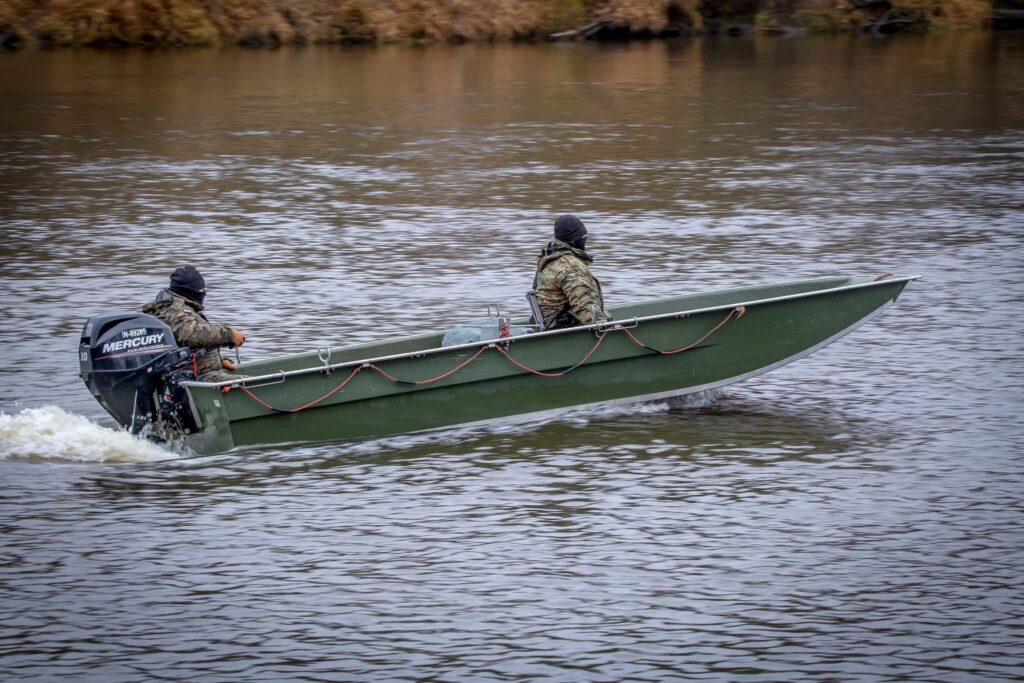
Border Guards overseeing Bug river near the Belarusian border / Photo: Border Guard
Loss of Belarus to NATO, or even merely its leaving the Russian sphere of influence could spell the end of Vladimir Putin’s rule, who despite common opinion doesn’t hold unlimited authority. He is surrounded by hardliner veterans of the former Soviet Union and has to follow their political line. The first fully visible example of that was annexation of Crimea and causing a crisis in Ukraine. Some sources claim that the initial plan assumed assimilation of rebelling republics into the Russian territory, like it was done with Crimea, but neither Putin wanted that, nor Federation was capable of accomplishing. There are even voices saying that Putin wouldn’t be president anymore if he did not annex the Crimea. That version is being confirmed by Sergei Markov, an analyst connected to the Kremlin. He thinks that the acquisition of Crimea was good, but it caused Russia to lose Ukraine. There will be no forgiveness for Putin if he loses Belarus after that.
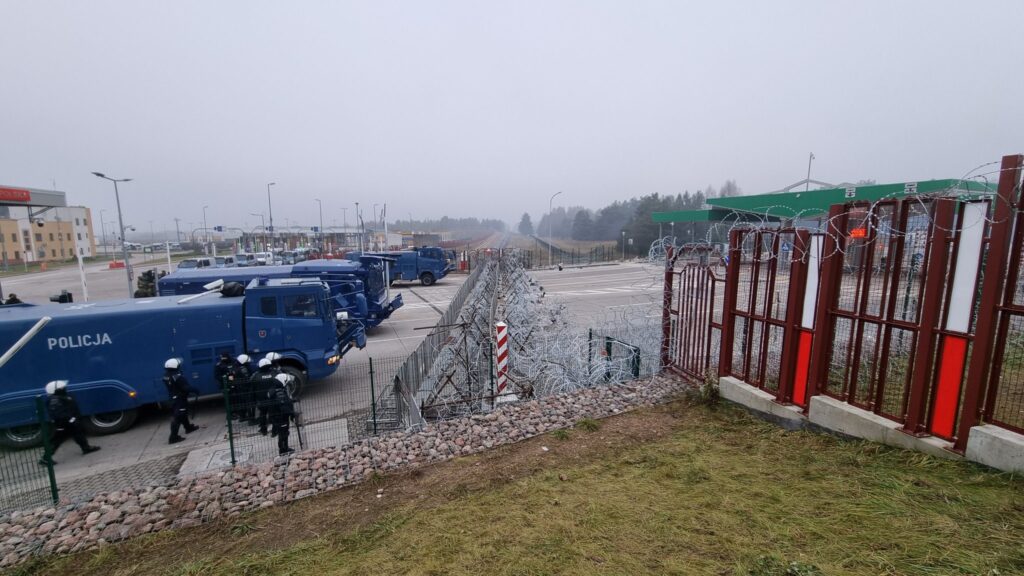
Polish forces securing the border crossing between Poland and Belarus in Kuźnica Białostocka / Photo: Polish Police
Conclusions
Trying to summarize the situation, we can say that on the Polish-Belarus border events happen that can be called hybrid war. In other words, we deal with a conflict without the use of conventional forces. An important role in such confrontations is played by the media, which, due to the introduction of the state of emergency in eastern parts of Poland, can’t report the events directly. On the pages dedicated to national security, we can find note that Belarus was surprised by the firm stance of Poland, which was expected to submit easily, mainly under EU pressure. Lack of media coverage crossed the plans of putting psychological pressure on Warsaw and indirectly on the European Union. The increasing numbers of migrants in Belarus and worsening weather conditions started to work to Belarusian regime’s disadvantage. Celebrities, actors, and so-called useful idiots, trying to lash at soldiers of our Armed Forces, publicized the case, but not in the way they thought. The Polish public, supported by signals from abroad, expresses positive opinions regarding activities of Border Guard and police. Thus, among the majority of Polish citizens believe the decisions made by the Polish government were correct.
There are three types of migrants on the border. Some of them are authentic refugees coming from territories that are torn by wars, devastation, persecution, or corruption preventing normal functioning. They are usually together with families and want to reach the European Union. They are the first that left back to their native countries when the events escalated, declaring at the same time they will attempt to reach the EU again when an opportunity arises, because they can’t live in their countries. They are the real victims of the circumstances, unwitting tools in the hands of Belarusian dictator.
The second group is composed of economic migrants who pretend to be war refugees, which is supposed to explain their lack of documents. They don’t try to apply officially for refugee status in Poland, because the law would require them to stay in Polish territory, including being turned back to Poland if they tried to move to another country. Germany is their intended destination, as a much more economically attractive country. The third group are people sent by Russian and Belarusian regimes. These are people who lived in those countries for years. They often work with their security forces, as evidenced by their fine grasp of Russian language. They are described as finely-trained experts sent to train migrants and commit diversionary activities.
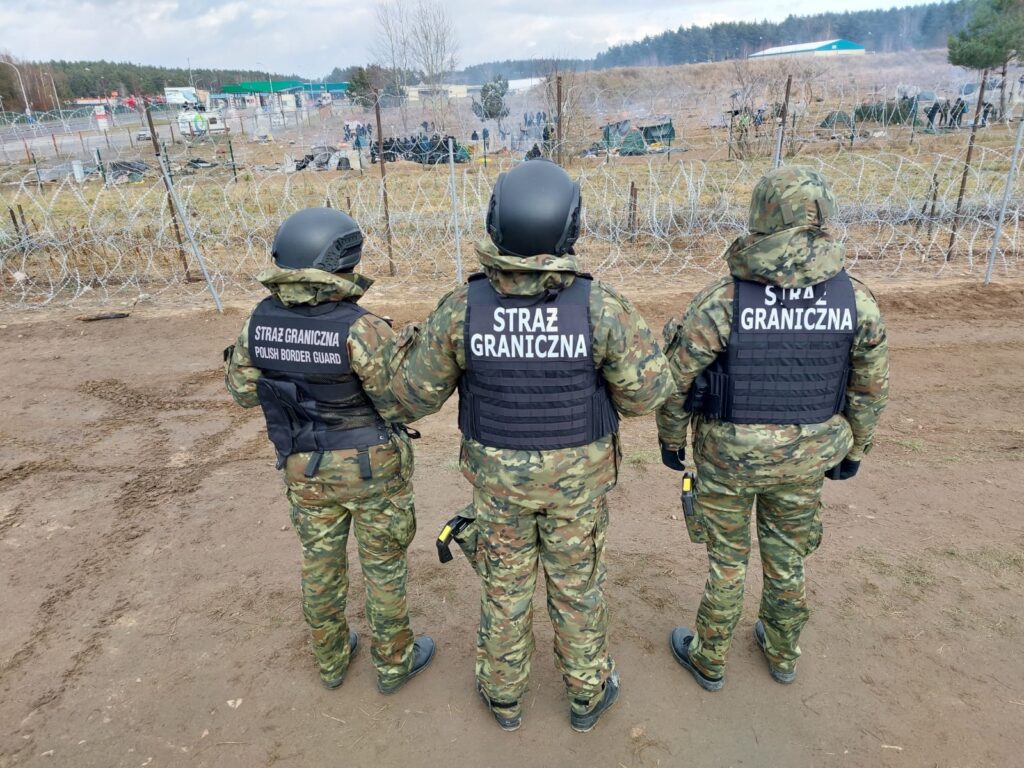
Border Guard officer near Kuźnicy Białostocka border crossing / Photo: Border Guard
The crisis let us see the actual strength of the European Union, which stopped resorting to merely drawing crayon signs of solidarity with attacked countries. European diplomacy showed it can react quickly and reach different places, and use a multitude of methods to exert pressure and stop flights from Middle Eastern countries to Belarus.
At the same time, the decision to support migrants by financing their stay in Belarus raises authentic and fierce opposition of Belarusian citizens that immigrated to the EU, citing the passivity of the EU regarding opposition activists interned by the Minsk regime.
Any concession toward Belarus will be the defeat of the European Union. Any decision that doesn’t firmly support Poland and the Baltic countries, will be seen as Lukashenko’s victory. The Union can’t let even a small group of migrants because of fears of repeating 2015. Talks with Belarusian president will be viewed as recognition of his legitimacy.

Polish Fire Brigades were sent to help secure the borders alongside the military and police / Photo: Polish Fire Brigades
Belarusian crisis and the necessity of sanctions should lead to wider reflection over the European chain of supplies. Synthetic fertilizers can be an example. Until now, the EU’s main supplier of those was Belarus, offering them at low prices. It was possible because Minsk has access to cheap hydrocarbons from Russia. We can now hear farmers complaining about a step increase of their price. The European Union should diversify sources of such supplies. The crisis is a good motivation for such steps. Spain could be seen as an example, bringing gas from Peru instead of resorting to Russia
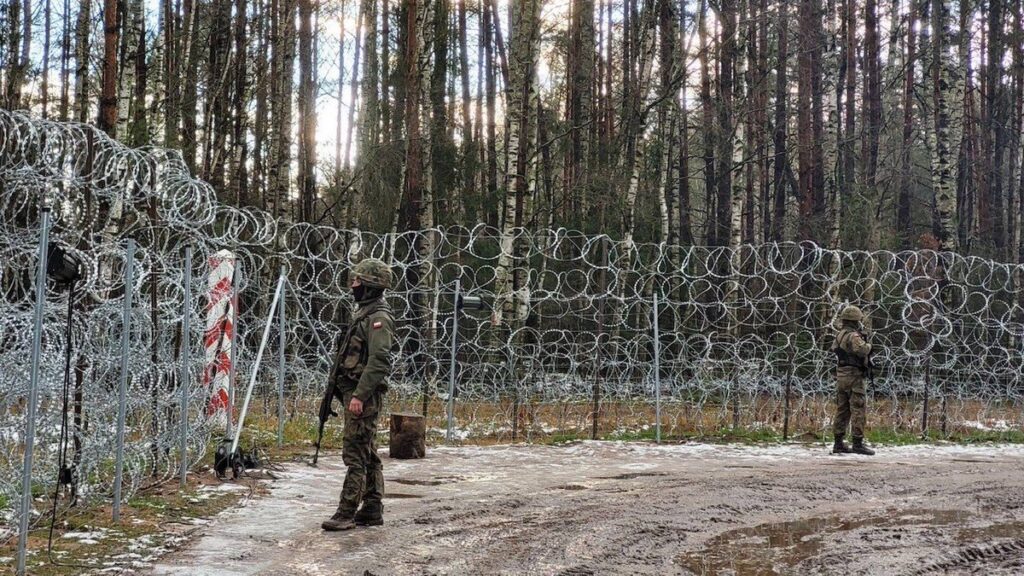
Polish-Belarusian border temporarily secured with additional barbed wire fence awaiting construction of permanent barrier / Photo: the Ministry Of National Defense
The time works against Belarus. Frosts coming to borderlands will cause casualties among people unaccustomed to eastern European climate. When deaths start appearing on Belarusian side, Lukashenko will lose any mandate to ask for aid or talks with the European Union, and he seems to be aware of that.
The Russian role in the situation can be the key to the situation. Talks with Putin regarding Lukashenko are the right way to handle it. On one hand it puts the sanctioned president to the side, one the other it pushes him more into the role of one of the Russian republics. Convincing the Kremlin to deal with the problem creates the situation where Putin gets the permission to handle his unruly puppet, minimizing the chance of Belarus breaking out of his sphere of influence. And the European Union will be able to announce their success: preventing illegal immigration, refusal to recognize sanctioned Lukashenko, showing the strength of joint diplomacy.
From the Polish point of view, it would be beneficial to stress our contribution to the defense of the European Union’s borders, cooperation with the Baltic states against Belarus, and use the looming threat as a card in conflicts with the European Commission. Itxu Diaz wrote a text for American “The Spectator” titled “Why If Poland Falls We All Fall”, expressing a domino-based argument. The slightest concessions for Lukashenko’s politics will cause far-reaching and tangible consequences in countries of the European Union, in the economic, cultural, and social contexts (5).
Footnotes:
3. Otriad Mobilnyj Osobogo Naznaczenija (ОМОН, Отряд Mобильный Особого Назначения, OMON, Special Purpose Mobile Unit, commonly known as Black Berets)
4. People forced to leave their native country because of a military conflict – either international or internal – are not usually considered refugees in the meaning of 1951 Convention or 1967 r.14 Protocols. They receive protection according to different international treaties, including 1949 Geneva Convention regarding protection of victims of war, and additional protocols signed in 1977 for the Geneva Convention regarding protections for victims of international military conflicts. “Handbook on Procedures and Criteria for Determining Refugee Status under the 1951 Convention and the 1967 Protocol relating to the Status of Refugees” United Nations Bureau Of High Commissioner On Refugees, Genewa 1992, p. 54
5. https://spectator.org/poland-belarus-putin/


